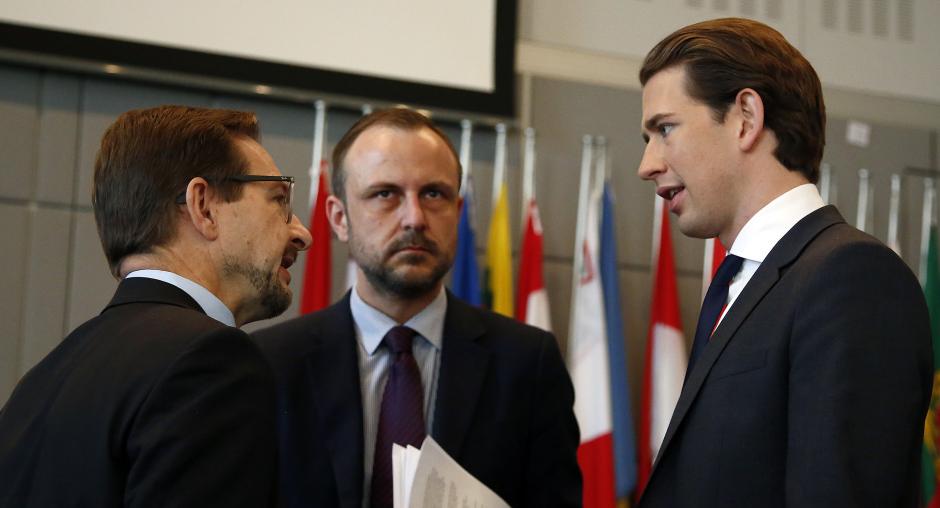OSCE can do more to fight violent extremism and radicalization that lead to terrorism, Chairperson-in-Office Kurz and Special Representative Neumann say

VIENNA, 29 September 2017 – OSCE Chairperson-in-Office and Austria’s Foreign Minister Sebastian Kurz and his Special Representative Professor Peter Neumann addressed a special meeting of the OSCE Permanent Council today in Vienna to present an expert report on the OSCE’s activities to prevent violent extremism and radicalization that lead to terrorism.
“Increasing threats to our internal security is a topic that is of burning importance to many people – not only in London or Paris, but equally in Diyarbakir, Saint Petersburg or Vienna. That is why I have made the fight against violent extremism and radicalization that lead to terrorism a central part of the work of our OSCE Chairmanship. My goal has been to put the OSCE’s work on these phenomena on a new footing and therefore it was important for me to bring on board a renowned and independent expert,” Kurz said.
Presenting his report, based on visits to 15 participating States and a careful study of relevant documents and institutional capacities, Neumann said: “My conclusion is that the OSCE is already engaging in a wide range of activities in the area of countering violent radicalization and terrorism, but that it can do even more.”
OSCE Secretary General Thomas Greminger underlined the vital importance for participating States to consider carefully how the potential of the OSCE to prevent and counter this phenomenon can best be utilized. “Field operations are particularly well placed to support the involvement of their host countries in international and regional processes for networking and exchanging good practices and lessons learnt,” he said.
“The OSCE is particularly well suited for three tasks: fighting the root causes of terrorism – above all through the independent OSCE institutions including ODIHR and the High Commissioner for National Minorities; building up local capacities – especially in the western Balkans and Central Asia, where the OSCE has a strong presence; and systematic exchange of good practices, including model projects, particularly in the field of countering violent radicalization,” Neumann explained.
“It is important that the OSCE move even more quickly and pro-actively to address new emerging issues, such as possible connections between violent radicalization, migration and integration,” he said.
Neumann suggested building up the Department of Transnational Threats in the OSCE Secretariat to make it a hub for information exchange, especially in the area of fighting radicalization to violent extremism. He also pointed to the fact that there was a lot of work still to be done by participating States – in fighting the root causes of terrorism, building up prevention programmes and moving beyond declarations about the importance of international co-operation to put these into practice.
Neumann was appointed Special Representative Special Representative on Countering Radicalization and Violent Extremism in January 2017. The entire report can be found here.
